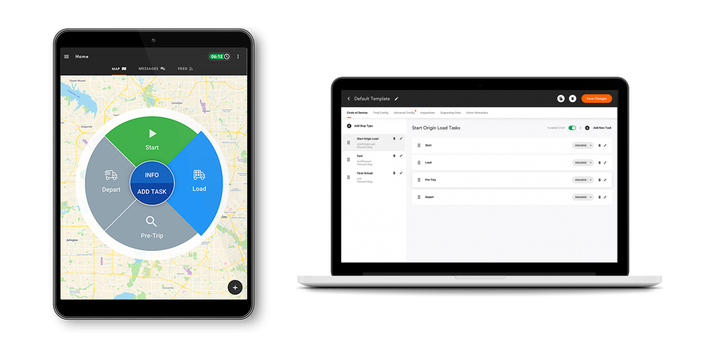Omnitracs lab focusing on hyper-local weather, parking deserts
TORONTO, Ont. – Today’s vehicle-based data offers information about trailer locations and more. But work at the Omnitracs Innovation Lab is taking a hyper-local focus – building new insights into everything from local weather conditions to parking deserts.
The Chicago-based group, which operates like a separate start-up company within Omnitracs, was created a year ago with the goal of using artificial intelligence (AI) and machine learning to solve industry problems.

“With enough of the right kind of data, we believe most events are predictable,” says Michal ‘Mic’ Yariv, vice-president and general manager – strategic initiatives, during a related webinar. And that even refers to events like mechanical breakdowns, accidents, and detention times at a shipper’s location.
With the right information, the trucking industry can focus more on time than mileage as a key metric. That, she said, is particularly important in an era of electronic logging devices (ELDs).
There’s already a lot of data to be had. Omnitracs has 10,000 customers, and monitors about 1.2 million trucks per day, generating 30 terabytes of position-related data per year.
“Having so much of this data allows us to produce insights that you can’t really produce on your own,” she said.
Still, the local details make a difference. It’s why drivers still turn to their peers on social media for insights into how long it takes for a particular customer to unload trailers. There are limitations to social approach, though, since the answer can vary depending on the day of week, time of year, and type of equipment.
It’s led the lab to focus on activities around 6.69 million unique locations, tapping into the anonymous, aggregated data from individual trucks.
Looking beyond traditional geofencing, the Omnitracs lab added a layer of GPS points to see where trucks accessed the locations, and related spots like security shacks and bobtail parking lots. From there, they began to calculate dwell times. Online posts by drivers were analyzed to add yet another layer of data.
“If you do this across thousands of trucks, and thousands of visits, then you can start understanding the patterns,” Yariv said.
Patterns in weather can be monitored more closely as well.
“There’s so much work being done right now in generating new source of weather data, it really helps,” Yariv said.
Connected cars can identify when a group of vehicles have activated windshield wipers. Artificial intelligence can monitor the images on traffic cameras.
Even the signals from microwave towers offer insights.
“When they’re emitting microwaves and sending them, there’s a difference between a perfect wave and a wave that’s distorted,” she explained. The end result can identify precipitation at a hyper-local level, generating alerts within a truck, or notes for safety and operations teams.
By plotting locations when drivers are in their sleeper berths for five hours or more, Omnitracs is also looking to identify parking deserts — the locations where drivers might be forced to stop on a highway or park at an interchange.
“Our work here isn’t done,” she said, referring to the lab’s ongoing work to identify acceptable locations like terminals, gas stations, and rest areas.
It’s all closer to science fact than science fiction. Omnitracs expects to roll out some of the related location-based intelligence data in its products within the year.
Have your say
This is a moderated forum. Comments will no longer be published unless they are accompanied by a first and last name and a verifiable email address. (Today's Trucking will not publish or share the email address.) Profane language and content deemed to be libelous, racist, or threatening in nature will not be published under any circumstances.